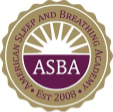Oral Appliances to Treat Snoring and Sleep Apnea
By Ira L. Shapira, D.D.S., F.I.C.C.M.O.
Reprinted from Sleep & Health - October 2004
It is now acknowledged that oral appliances are well-accepted treatment of mild and moderate apnea and are even being used successfully with severe apnea in patients that do not tolerate CPAP. A recent article showed drops in blood pressure in appliance wearers comparable to CPAP users. Most patients who have tried an oral appliance prefer them to CPAP, but they are not without problems.
Some Problems Correct Themselves
Compliance studies show patients wear appliances more frequently and for more time per night than they use their CPAP machines. The most common problems are too much salivation or dry mouth. In my experience almost 100 percent of patients experience excessive salivation in the first days of wearing an appliance, but this problem is usually self-limiting and in most patients goes away spontaneously.
Dry mouth is probably the second most common problem experienced, often in the same patients that initially experienced excess salivation; this too is self-limiting. Problems with the appliance being too tight or too loose are common but easily corrected. Sometimes the same patient who initially feels an appliance is too tight may later want that appliance tighter.
TMJ pain or muscle pain may occur in some patients, particularly if advancement of the mandible is more rapid than the patient can tolerate. I have seen a couple of patients who could not fall asleep with the appliance in their mouth; most of these patients eventually learn to accommodate the appliance by putting it in well before bedtime.
Bite Changes May be a Concern
The problems that concern dentists most are bite changes and tooth movement. It is not uncommon for bite changes to occur but often the patient is unaware of them. Once the changes are pointed out, about half of the patients found the changes to be favorable. Many of the changes are very gradual and can only be detected by serial orthodontic cephalograms. In spite of the changes, the majority of patients preferred appliances to CPAP and did not elect to discontinue appliance treatment.
I often see patients in my practice who have bite changes and we give them exercises to return their bite to its original position. The problem is many patients like their new bites better because they no longer have chronic head or neck pain, they have relief from tinnitus, ear stuffiness and pain. For these patients it is possible to correct the occlusions to their new bites.
Benefits Usually Outweigh Problems
The bottom line is that dental changes are usually minor and well tolerated by patients. It is important that the possibility of changes be discussed, and if change takes place that is problematic, the patient must inform the dentist. It is rare to see patients discontinue use of the appliances, and the health benefits usually outweigh the problems. I recommend that patients seek dentists who are credentialed by the Academy of Dental Sleep Medicine and who have taken efforts to expand their knowledge of dental sleep medicine. If your dentist is not a member, you may want to encourage him to join the group for continuing education in sleep medicine. You may find a credentialed dentist by going to www.dentalsleepmed.org.
Dr. Shapira is a charter member and credentialed by the academy of Dental Sleep Medicine, a Diplomat of the Academy of Pain Management and a Fellow of the International College of Cranio-Mendibular Orthopedics.






